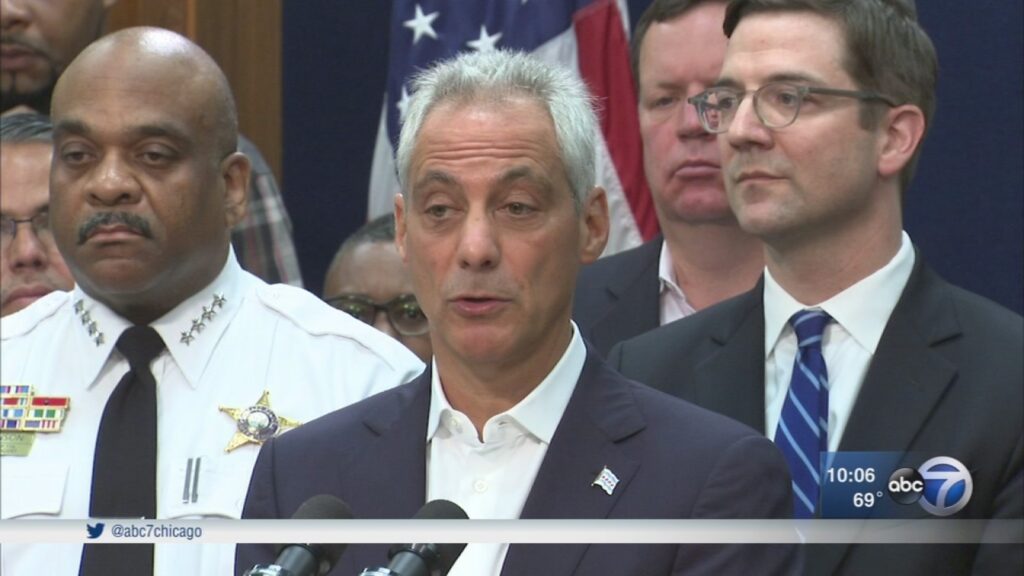
Understanding the Recent Lawsuit Against Chicago Over Sanctuary Laws
In recent news, the spotlight has turned towards Chicago, Illinois, as the U.S. Department of Justice has filed a lawsuit against the city and Cook County. This lawsuit revolves around what’s known as “sanctuary laws.” To help you understand this situation better, let’s break down the key points and what they mean for the city, the state, and for folks living there.
What Are Sanctuary Laws?
First off, let’s talk about what sanctuary laws are. These are rules or policies put in place by certain cities or states to limit how they work with federal immigration authorities. In simpler terms, they make it so that local law enforcement agencies don’t automatically hand over undocumented immigrants to federal agents. Supporters of these laws argue that they help protect vulnerable communities and allow undocumented individuals to feel safe when they seek help, report crimes, or access services. On the flip side, opponents argue that these laws hinder efforts to enforce immigration laws and can complicate the work of federal agencies.
The Lawsuit Explained
Now, let’s dive into the recent lawsuit. The U.S. Department of Justice, often referred to as the DOJ, claims that Chicago’s sanctuary laws keep federal agents from effectively enforcing immigration laws. They argue that these laws create barriers that slow down or prevent the capture of undocumented immigrants who might have committed crimes or who are simply breaking immigration laws.
In response, Illinois Governor JB Pritzker has defended the state’s stance. He argues that the laws, particularly the bipartisan Illinois TRUST Act, ensure that local law enforcement aligns with legal requirements while also protecting community members. This means they want to uphold the rights and safety of everyone living in Illinois, whether documented or undocumented.
Political Back-and-Forth
This lawsuit isn’t just a legal issue; it also highlights the political divide in the U.S. regarding immigration. Think of it this way: on one side, you have the federal government, which tends to push for stricter immigration enforcement. On the other side, you have local governments, like Chicago, that want to create more welcoming environments for all residents and support those who might be seen as vulnerable.
Chicago’s Mayor Brandon Johnson, who is also a strong supporter of the city’s sanctuary policies, has made it clear that he stands with undocumented individuals and workers. He believes that it’s essential for people to feel safe and secure in their communities, regardless of their immigration status.
A History of Tension
This situation is not entirely new. The relationship between the federal government and sanctuary cities has been strained, especially during Donald Trump’s presidency. His administration made attempts to crack down on these sanctuary cities as part of a broader agenda to enforce stricter immigration laws. Many local governments resisted these efforts, arguing that it was their responsibility to protect all their residents.
The Impact of the Lawsuit
So, what does this lawsuit mean for people living in Chicago and Cook County? There are several potential implications:
-
Increased Fear Among Undocumented Individuals:
If the lawsuit results in changes to these sanctuary laws, it might lead to undocumented individuals feeling more at risk. They may worry about deportation or legal repercussions if the federal government is allowed to increase their presence. This could make them hesitant to report crimes or seek medical help, which ultimately could harm community safety. -
Changes in Local Policies:
Depending on how the lawsuit unfolds, local leaders might have to rethink their sanctuary policies. If the court rules in favor of the U.S. Department of Justice, we could see stricter collaboration between local police and federal immigration authorities. This could essentially put local police in the position of acting as immigration agents, which is a role they have generally avoided. -
Political Ramifications:
This lawsuit may also ignite new political discussions and campaigns. It could lead to shifting voter sentiments, as some people may support stricter immigration enforcement while others champion the rights of undocumented individuals. This division could impact upcoming elections at both the local and state levels. -
National Spotlight:
As Chicago is one of the largest cities in the U.S., any developments here can have ripple effects across the country. Other cities with similar sanctuary laws might pay close attention to this case, watching to see how it unfolds and how it could impact their own policies.
The Future of Immigration in America
The issues surrounding immigration and sanctuary laws are complex and layered, involving human rights, public safety, and political ideologies. While the lawsuit against Chicago is set to challenge existing sanctuary policies, it also opens up broader discussions about immigration in the United States.
Should local governments prioritize community safety and inclusivity, or should they strictly follow federal immigration enforcement guidelines? This is a question that many cities are grappling with, not just Chicago.
What Can We Learn from This?
As high school students, it’s crucial to engage with these topics and form our own opinions. Understanding the implications of local policies versus federal laws is a key part of being an informed citizen. It’s about recognizing the power dynamics at play and considering the human impact behind these legalities.
At the end of the day, discussions about immigration laws aren’t just legal arguments. They are about real lives and real stories. The individuals involved have hopes, dreams, and fears like everyone else.
Final Thoughts
As the lawsuit proceeds, everyone involved will be watching closely to see the outcome. How will this decision affect undocumented residents in Chicago? Will it change how local and federal governments cooperate?
We’d love to hear your thoughts! What do you think about sanctuary laws and the recent lawsuit? Should local governments have the power to protect undocumented individuals, or should they cooperate fully with federal authorities? Feel free to share your opinions in the comments below!





